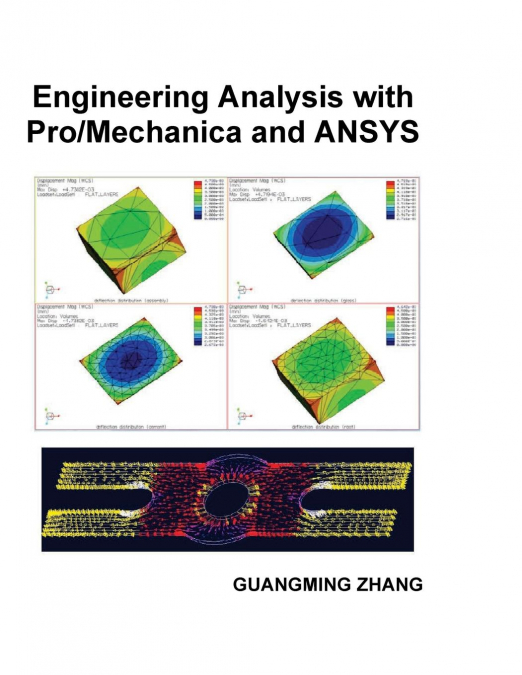
 Librería Perelló (Valencia)
Librería Perelló (Valencia)
 Librería Aciertas (Toledo)
Librería Aciertas (Toledo)
 El AlmaZen del Alquimista (Sevilla)
El AlmaZen del Alquimista (Sevilla)
 Librería Elías (Asturias)
Librería Elías (Asturias)
 Librería Kolima (Madrid)
Librería Kolima (Madrid)
 Donde los libros
Donde los libros
 Librería Proteo (Málaga)
Librería Proteo (Málaga)
The book is organized into 10 chapters. The first chapter provides a fundamental coverage of finite element methods. It stresses the mathematical and mechanical fundamentals, which support the development of finite element methods. Chapter 2 introduces the Pro/ENGINEER Wildfire design system and Pro/Mechanica, which is engineering simulation software to carry out finite element analysis. Chapter 3 focused on modeling a variety of load conditions. Chapter 4 focuses on modeling the boundary conditions of mechanical structures in general; illustrating the procedure of dealing the physical entities both at the component level and at the assembly level. Chapter 5 presents engineering analysis in the thermal domain. Chapter 6 presents an important branch of finite element methods. The branch is shell modeling through idealization. Chapter 6 also covers a review of the stress conditions so as to understand the mechanism of the engineering simulation software in the computing process. In Chapter 7, we focus on applications. Several case studies deal with engineering vibration analyses and buckling analyses. Chapter 8 introduces a specific concept called design optimization. Chapter 9 deals with the beam elements. Several examples related to mechanics of materials are presented. The engineering simulation system of ANSYS is introduced in Chapter 10. ANSYS is the FEA software most widely used in industry, not only nationally, but worldwide as well.The material assembled in this book is an outgrowth of a senior-level design elective course taught by the author at the University of Maryland at College Park for the past ten years. Moreover, this book is written in a style adaptable for self-study and reference.